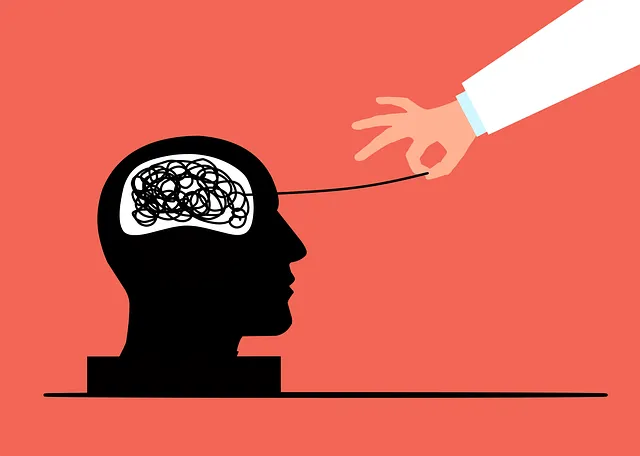The media's portrayal of mental illness significantly impacts public perception, with accurate depictions reducing stigma and encouraging support, while negative representations perpetuate stereotypes and deter help-seeking. Organizations like Kaiser, offering comprehensive mental health services in Lakewood and beyond, play a crucial role in promoting responsible media content through initiatives focusing on ethical storytelling, stigma reduction, and empathy-building. Kaiser's holistic approach emphasizes early intervention, diverse therapeutic modalities, and proactive care, empowering individuals to manage their emotional well-being effectively. Accurate media representation is vital for fostering public understanding and support for those with mental illness, requiring collaboration between media creators, healthcare professionals, and community advocates.
In today’s media-saturated world, the representation of mental illness plays a pivotal role in shaping societal perceptions. This article explores the profound impact of media portrayal on mental health awareness and offers solutions to combat prevalent stereotypes. We delve into the heart of the issue by identifying misconceptions in popular culture and present a case study on Kaiser’s innovative approach to mental health services in Lakewood. Additionally, we provide actionable strategies for fostering accurate representation, ultimately fostering a more compassionate understanding of mental illness.
Discover how these efforts can drive positive change and challenge traditional narratives surrounding mental health.
- Understanding the Impact of Media Portrayal on Mental Health Perception
- Identifying Stereotypes and Misconceptions in Popular Culture
- Kaiser's Approach to Mental Health Services: A Case Study
- Promoting Accurate Representation: Strategies for a Positive Change
Understanding the Impact of Media Portrayal on Mental Health Perception

The media’s portrayal of mental illness significantly influences public perception and understanding of various psychological conditions. This representation can either perpetuate harmful stereotypes or foster empathy and awareness, playing a pivotal role in shaping societal attitudes towards mental health. When media platforms depict individuals with mental illnesses accurately and sensitively, it contributes to reducing the associated stigma, encouraging support, and promoting early intervention. Conversely, negative or inaccurate portrayals can exacerbate existing biases, leading to misinformed judgments and potentially hindering those affected from seeking necessary help.
Given these implications, it becomes crucial for media creators and professionals in the field of mental health to collaborate on developing responsible content. Organizations like Kaiser, known for offering comprehensive mental health services in Lakewood and beyond, can spearhead initiatives focusing on accurate representation. These efforts may include risk assessment strategies for media professionals to ensure ethical storytelling, mental illness stigma reduction campaigns, and implementation of empathy-building techniques to enhance public understanding and compassion.
Identifying Stereotypes and Misconceptions in Popular Culture

In popular culture, mental illness is often portrayed through stereotypes and misconceptions that can be deeply harmful. Media platforms, including television shows, movies, and social media, frequently depict individuals with mental health struggles as either dangerously unpredictable or pitied and helpless. These representations fail to capture the complexity of mental illness, leading to a skewed understanding among the general public. For instance, conditions like depression or anxiety are sometimes shown as mere phase or character flaws, obscuring the real challenges faced by those affected.
This misrepresented narrative has profound implications, especially when it comes to services like those offered by Kaiser in Lakewood. If viewers only see distorted views of mental health, they may be less inclined to recognize symptoms in themselves or others and more hesitant to seek help. Therefore, addressing these stereotypes is crucial. Organizations can play a pivotal role through initiatives such as Burnout Prevention Strategies for Healthcare Providers and Stress Management Workshops, ensuring professionals are equipped to offer accurate, compassionate support while promoting effective Mental Health Services in the community, including those available from Kaiser in Lakewood.
Kaiser's Approach to Mental Health Services: A Case Study

Kaiser’s Approach to Mental Health Services: A Case Study
In terms of mental health support, Kaiser stands out as a beacon, offering a robust and comprehensive suite of services tailored to meet diverse needs in Lakewood and beyond. Their strategy focuses on early intervention and proactive care, acknowledging that emotional regulation and mood management are integral components of overall well-being. By integrating various therapeutic modalities, Kaiser ensures individuals have access to evidence-based practices designed to address both acute episodes and long-term mental health challenges.
One innovative approach within Kaiser’s framework involves the incorporation of mindfulness meditation as a complementary practice. This ancient technique is increasingly recognized for its effectiveness in promoting mental clarity, reducing stress, and enhancing overall emotional resilience. By integrating mindfulness into their service offerings, Kaiser demonstrates a forward-thinking commitment to holistic well-being, empowering individuals to take control of their mental health journey.
Promoting Accurate Representation: Strategies for a Positive Change

Promoting Accurate Representation: Strategies for a Positive Change
The media plays a significant role in shaping societal perceptions about mental health, and accurate representation is crucial. Organizations like Kaiser offer mental health services in Lakewood and across various communities, emphasizing the importance of accessibility and awareness. By showcasing diverse individuals navigating their emotional healing processes, media can challenge stereotypes and foster empathy. This shift in portrayal can significantly impact how society understands and supports those struggling with mental illness.
Implementing strategies to enhance accurate representation involves collaborations between media creators, health professionals, and community advocates. Encouraging authentic storytelling, consulting experts in the field, and highlighting successful recovery journeys can contribute to positive change. Furthermore, addressing burnout prevention and self-esteem improvement through media campaigns focused on mental wellness can empower individuals to seek help and embrace support systems.
Media representation of mental illness plays a pivotal role in shaping societal perceptions and access to support. By identifying and challenging stereotypes, we can foster understanding and encourage help-seeking behaviors. Kaiser’s innovative approach, showcased through their case study, demonstrates the potential for positive change in mental health services. Implementing strategies to promote accurate representation is essential, not only for those in Lakewood seeking mental health support but also for communities worldwide aiming to revolutionize care and reduce stigma.






